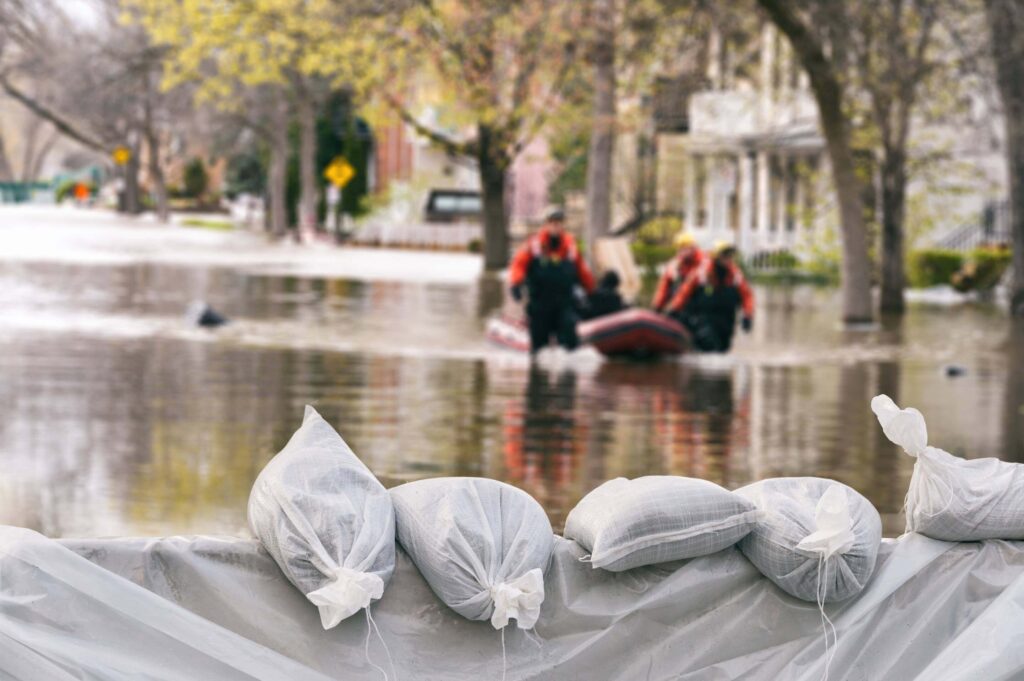By Bryan O. Blevins, Jr.
Equity Partner
The Coronavirus (COVID-19) is having a dramatic economic effect throughout the United States, and on industries as diverse as electronics, auto manufacturing, construction, passenger cruises, shipping, travel, transportation, hospitality and healthcare. Supply chains and manufacturing have been disrupted by facility closures worldwide and ultimately there will not be an industry sector or business that will not be impacted by and face potential losses from COVID-19. With such significant business disruptions occurring as a result of COVID-19, companies should consider how business interruption insurance, can help offset losses. The availability of insurance to cover these losses will depend on the provisions of the insurance policy and the facts of the case.
Business Interruption Insurance
On April 10, 2020, a Houston based theater chain filed in Houston Federal Court, one of the first business interruption claims following the denial of COVID-19 coverage by Lloyd’s of London. SCGM Inc. v. Certain Underwriters at Lloyd’s. Business interruption insurance is typically sold as part of a business’s property damage insurance policy. Business interruption insurance protects against losses sustained as a result of periods of suspended operation due to physical loss or damage. Contagious diseases, like COVID-19, may constitute physical loss or damage that triggers insurance coverage. As such, if your business is forced to shut down facilities and you incur losses, then your business interruption insurance may provide relief. However, in recent years, insurers have added specific exclusions for bacterial and/or viral infections to their coverage and then added coverage back through a defined list of diseases. The specific wording of the exclusion and coverage added back for certain diseases will determine if coverage exists for COVID-19 losses. Another example of specific policy language would be that viruses are not bacteria and, therefore, if your policy only excludes coverage for bacteria, coverage may exist for COVID-19 losses. Insurers can also be expected to argue that other exclusions may apply to bar coverage. Once a claim is tendered, the insurer provides its reservations setting forth all of the potential coverage issues relating to losses.
This will be the legal battleground as insureds argue the virus “infected” the covered premises resulting in a suspension of normal business operations during a period of cleanup and restoration.
Supply Chain Insurance
Supply chain or Dependent property insurance, also known as contingent business interruption insurance, protects against losses stemming from supply chain disruptions. Policies exist to cover interruptions of deliveries of raw materials, parts, or supplies. Specialized supply chain insurance has been written to cover certain industries, such as healthcare, hospitality, retail and pharmaceutical. Supply chain insurance covers losses, typically including increased costs, from lost or reduced operations resulting from physical damage to materials or on the premises of an identified supplier.
Importantly, supply chain insurance may only cover losses stemming from disruptions from specific suppliers scheduled in your policy. Supply chain insurance also usually requires that the supplier suffer the type of property damage that would be covered in the insured’s own first-party policy. As discussed above, this would typically require physical loss or damage at the supplier’s facility to trigger coverage.
Business interruption and supply chain insurance, including contingent business interruption, generally require a showing of physical loss or damage to the property insured. A typical provision covering losses related to business interruption would include:
Business Income – We will pay for the actual loss of Business Income you sustain due to the necessary “suspension” of your “operations” during the “period or restoration.” The “suspension” must be caused by direct physical loss of or damage to your covered Building or Business Personal Property at locations which are described in the Declarations. The loss or damage must be caused by or result from a Covered Cause of Loss.
Covered Loss – Covered Causes of Loss means direct physical loss or direct physical damage that occurs during the Policy Period and in the Coverage Territory unless the loss or damage is excluded or limited in this policy.

A question immediately arises as to what “direct physical loss” means against the backdrop of a pandemic such as COVID-19. The modern interpretive trend is to liberalize the meaning of direct physical loss – to focus upon loss of use as opposed to direct physical loss involving physical alteration. Fire, water and smoke are typical examples of physical damage from an outside source that may demonstrably alter the components of a building and trigger coverage. However, smoke, natural gas and radiation could represent a physical loss of use of the covered premises. This will be the legal battleground as insureds argue the virus “infected” the covered premises resulting in a suspension of normal business operations during a period of cleanup and restoration.
As part of any review, it is important to gather and review all policies of insurance applicable to your business when assessing likely coverage for COVID-19 related losses. Although rare, all risk and stand-alone Business Interruption policies exist while Umbrella or Extended Limits policies may substantially increase the coverage dollars available for otherwise limited rider coverages like those covering actions of “Civil Authorities.”
Governmental Orders Relating to COVID-19
Most of the United States has been operating for several weeks under some version of “shelter in place” orders from local and state Governments shutting down “non-essential business” operations. Business Interruption coverage may be triggered by local, state, or federal government orders or other actions of “civil authorities”. Although the ramifications of COVID-19 are causing the insured’s losses, the question will be whether the conditions for covered loss have triggered coverage.
In general terms, civil authority coverage applies when a governmental authority issues an order that results in the evacuation or limits access to certain areas as a result of public safety concerns including threat of a natural disaster or other similar event:
This policy is extended to cover the actual Gross Earnings loss sustained and Extra Expenses incurred while access to an Insured Location is specifically denied by order of civil authority. This order must be a result of direct physical loss of or damage to property, other than at the Insured Location, and must be caused by a Covered Cause of Loss.
Another example of a Civil Authority provision would be:
The Policy covers Actual Loss Sustained and Extra Expenses incurred by the Insured during the Period of Liability if an order of civil authority impairs access to the Insured Location provided such an order is the direct result of physical damage of the type insured against under this Policy at the Insured Location or within ten miles of it.
Courts have established the general framework for determining the application of civil authority coverage to business income losses. Typically, civil authority coverage is triggered if the following elements are met:
- Loss of business income was caused by an action of civil authority
- The civil authority by an order or act must prohibit access to the insured location
- The action of the civil authority of prohibiting access to the insured location must be caused by direct physical loss of or damage to property other than at the insured location
- The loss or damage to the property other than at the insured location must be caused by or result from a covered cause of loss
In the case of the wildfires and hurricanes (and other natural disasters), governmental authorities often issue mandatory evacuation orders. These types of closures and mandatory evacuations beg the question of possible business interruption coverage for nearby hotels, restaurants and other tourist-driven businesses that suffer a decline in business. However, if these evacuation orders are issued only as a precaution to protect the public from safety concerns prior to any property being damaged, then business interruption coverage may not be triggered.

In South Texas Medical Clinics PA v. CNA Financial Corp. the Court granted summary judgment in favor of the insurer because the insured failed to establish a link between the property damage and the issuance of an evacuation order before the arrival of Hurricane Rita. As Hurricane Rita passed by south Florida, property sustained damaged there as well as to oil platforms in the Gulf of Mexico. As a result of this damage in Florida and the Gulf of Mexico, and because the storm was projected to make landfill near Galveston, Texas, the county judge ordered an evacuation of Wharton County. As a result of the evacuation order, the insured closed clinics in Wharton County, as well as clinics in other counties. Ultimately, however, Hurricane Rita did not make landfall near Wharton County, and none of the insured’s clinics were damaged. The insured made a claim for lost revenue as result of the closing of its clinics in Wharton Country. The court ruled against the insured concluding the county judge made the decision to evacuate based upon “the anticipated threat of damage to Wharton County” and not actual property damage that had occurred in Florida and the Gulf of Mexico as that property damage was only “an indication of the harm that could result” from the hurricane. Similarly, a law firm in New Orleans was forced to shut down when a mandatory evacuation order for the city went into effect prior to Hurricane Gustav. The insured claimed that its employees were prohibited from accessing its office between August 31st and September 4th, resulting in business income losses. The insurer responded that coverage was not triggered because the mandatory evacuation order was issued in anticipation of possible harm from the storm and not from any property damage within proximity to the insured’s offices. The court agreed with the insurer and denied the law firm’s claim for business income loss caused as a result of the mandatory evacuation.
Accordingly, insureds and insurers alike must be familiar with the civil authority provisions contained in their policies and how they may be interpreted considering the nature and timing of action by civil authorities.
Policy Exclusions For Business Loss Relating To COVID-19
In recent years, the insurance industry has limited the available coverage for pandemic diseases. One insurer has already taken the position that it intends to narrowly construe coverage for losses arising out of “notifiable diseases” to exclude COVID-19 as falling within a category of excluded virus types in its policies, regardless of the fact that the exclusion does not reference the virus. As such, policy holders are on notice that claims relating to losses from COVID-19 will be evaluated strictly by insurers. One example of a specific Pandemic Exclusion states:
We will not pay for loss or damage caused by or resulting from any virus, bacterium or other microorganism that induces or is capable of inducing physical distress, illness or disease. However, this exclusion does not apply to loss or damage caused by or resulting from “fungus”, wet rot or dry rot. Such loss or damage is addressed in a separate exclusion in this Coverage Part or Policy.
As noted, another possible exclusion arises out of the historical consideration of “mold” resulting from hurricane or flood related damages. A typical policy exclusion for mold states that We will not pay for loss or damage caused directly or indirectly by any of following…fungus, wet rot, dry rot or bacteria. Such loss or damage is excluded regardless of any other cause or event that contributes concurrently or in any sequence to the loss or damage. Because the language used by different insurers differs from policy to policy, an intensive review of each provision of the policy against the COVID-19 backdrop will be necessary to determine if coverage is excluded.
Congress Urges Insurers To Recognize Covid-19 Business Interruption Coverage And Response
Several members of Congress sent a letter on March 18th to the insurance industry urging them to recognize financial loss due to COVID-19 as part of policyholders’ business interruption coverage. The signatories include members from several states, including New York, New Jersey, Pennsylvania, California, Texas, Ohio, Florida, Michigan, Minnesota, Kentucky, and Arkansas. In the letter, they state the following:
Business interruption insurance is intended to protect businesses against income losses as a result of disruptions to their operations and recognizing income losses due to COVID-19 will help sustain America’s businesses through these turbulent times, keep their doors open, and retain employees of payroll.
On March 20th, the insurance industry responded that, among other things, [b]usiness interruption policies do not, and were not designed to, provide coverage against communicable diseases such as COVID-19…
As the COVID-19 pandemic continues to evolve, regulatory and legislative authorities are taking actions, in the form of directives and orders, that could directly impact companies’ business interruption coverage. Careful review of insurance policies and insurers’ responses considering these actions will be critical in preserving companies’ rights to coverage for COVID-19 losses.
How We Can Help
If your business is suffering losses from COVID-19, the lawyers at the Provost Umphrey Law Firm can review your policies of insurance and determine if the losses trigger coverage for business interruption. If you have any questions or would like more information on the issues discussed, please contact us at (888) 588-1695.
About The Author
Bryan O. Blevins, Jr. joined Provost Umphrey in 1990. He earned his board certification in Personal Injury Trial Law from the Texas Board of Legal Specialization in 1995 before becoming firm equity partner in 1997. Blevins specializes in personal injury law and commercial litigation. He was elected President of the Texas Trial Lawyers in 2015 and has testified before the Texas Legislature on civil justice issues since 2003. Blevins is one of our many Hard-Working Lawyers committed to getting you the justice you and your family deserve.




 Texas-based Provost Umphrey Among Nation’s Best Law Firms for 12th Year
Texas-based Provost Umphrey Among Nation’s Best Law Firms for 12th Year